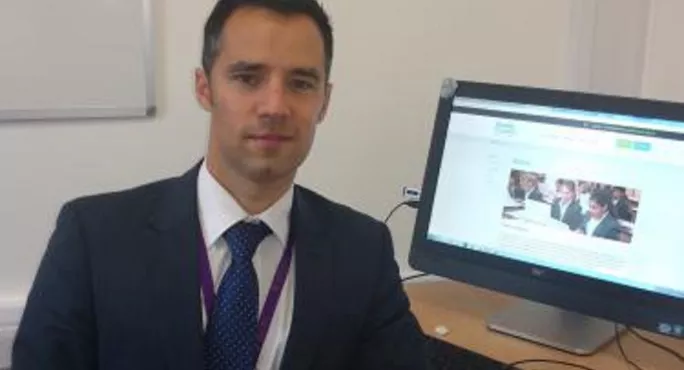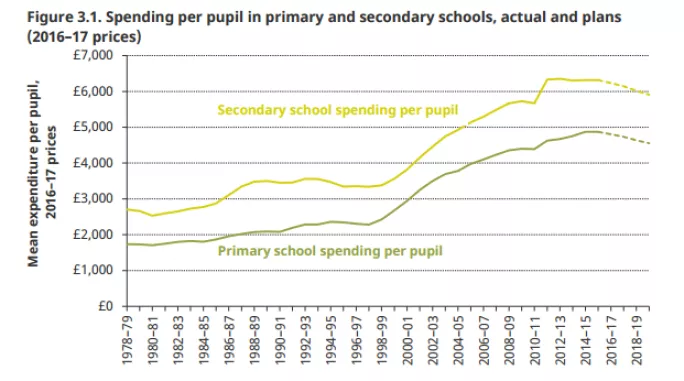The concerns have been growing louder and more intense, rising to a crescendo in recent weeks in a coordinated attempt to persuade the government to find some more education funding from somewhere. And finally the cries of doom have now broken into the mainstream press and wider media.
So far, it has all been to no avail and the Treasury hasn’t budged - although I wouldn’t be surprised if a small rabbit is pulled out of the hat at some point to make the transition to the national funding formula more palatable.
However, I’ve become increasingly uncomfortable with much of the debate around school funding. I’m not disputing that things have got, and are going to get, tighter over the next few years; I’m facing challenges myself as principal of Bedford Free School, a smaller-than-average secondary school in one of the worst-funded towns in the country.
But there has been something about the tone of recent campaigning that doesn’t sit right. I’m not going to make myself popular with what I write below, but I’ve decided to put my head above the parapet because I’m worried that if we mismanage things we are going to undermine our profession’s hard-earned reputation for integrity.
‘This isn’t armaggedon’
First of all, let’s keep it in perspective: the squeeze we’re going to experience is relatively small compared with what the vast majority of organisations, public and private sector, have experienced as the government’s austerity policies have bitten post-2008. And it only takes us back to the levels of per-pupil funding we had in the late Labour years. We weren’t claiming apocalypse then, and I don’t understand why it has to mean armageddon now.
(Source: https://www.ifs.org.uk/uploads/publications/comms/R126.pdf )
We would all like to think that our sector is a special case, and should be beyond the constraints of fiscal reality, but we have to play our part in getting the country’s finances in order. School funding was largely protected after the financial crash and amid the ensuing austerity, but now it’s our turn to feel the pressure. And we all know that in many schools large amounts of money could be saved if leaders treated their staff right so they stayed in the job, scrapped unnecessary admin, got on top of behaviour, stopped paying for Mocksteds and quack consultants, and kept the money they give out to union facilities funds, and the like.
Secondly, while part of the squeeze is due to there being more kids in the system, much of it is also due to staff costs going up. Some of this is from the higher Living Wage, but I don’t believe that anyone will begrudge paying the lowest earners in schools a bit more.
Let’s be honest, though - the vast bulk of the potential cost increases are going to occur to protect or enhance the pay and pensions of staff, through automatic moves up pay scales or higher contributions to already generous staff pensions. School leaders have the flexibility, if they wish, to manage pay uplift to make things more affordable, but many have simply chosen not to do so. That’s their right, but it means they’re foregoing the most straightforward and equitable way to make sure precious resources are spread furthest.
‘We risk losing the public’s trust’
This leads me on to my final, and most important point. I am worried that our sector is coming across as detached and self-entitled. Teaching is, rightly, a well-paid profession, with generous holidays and pensions, amazing job security and unbelievable job satisfaction, too. The average full-time salary in the country is around £26,000 a year; most teachers are on more than this within a few years of starting out, with middle and senior leaders on far, far more. I’m not saying this is wrong, but we have to think about how our recent claims of penury will sound to the large numbers of low-income and vulnerable families we serve - who have no choice but to live within their means, even when things are tight.
The majority of school funding is spent on our salaries and pensions, so we cannot escape the fact that we could, if we choose, manage the squeeze by showing restraint, particularly at the top end of schools, where people are earning two, three or four times the national average - and every 1 per cent foregone here goes a long way. If we don’t do this then there is a big risk that our position as the most trusted profession in the country will be undermined, and our ability to advocate for the really important things for our kids will be damaged.
Mark Lehain is founder and principal of Bedford Free School, and on the advisory Councils of Parents & Teachers for Excellence, and the New Schools Network. He tweets @lehain
Want to keep up with the latest education news and opinion? Follow TES on Twitter and like TES on Facebook




